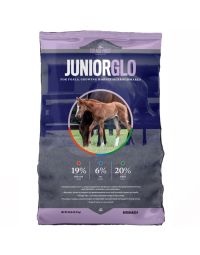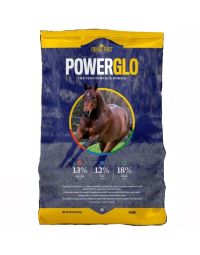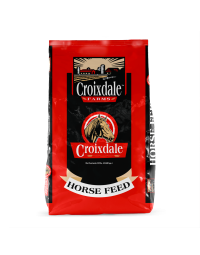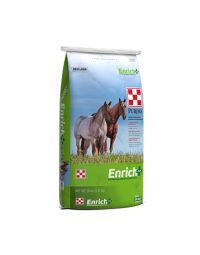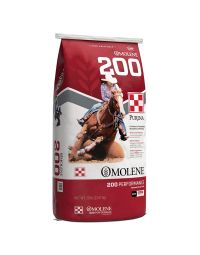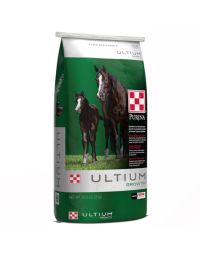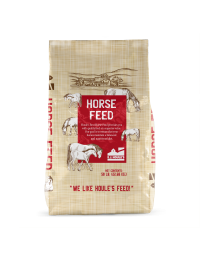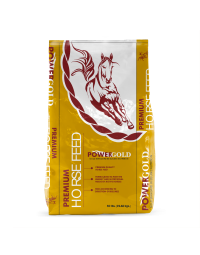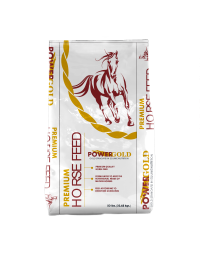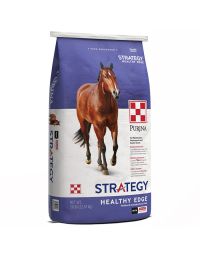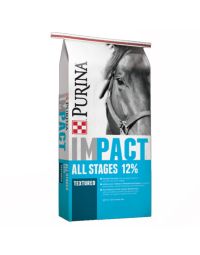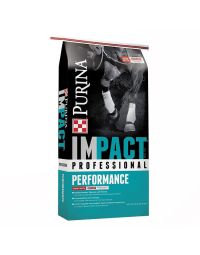Making sure your horse is healthy can be a daunting topic. Spikes and Houles experts are prepared to help you make sure your horse is receiving adequate nutrition & settling into a solid routine. While every horse is different and there is no one plan that fits every horse, there are some general guidelines we can provide to keep you on the right track. Always consider your horses’ lifestyle, age, activity level, quality of their forage and grazing land, and other health considerations and consult your veterinarians before creating or changing their diet.
Horse stomachs are relatively small compared to their body weight and can only hold a small amount at one time. Unlike humans who only produce gastric acid when actively digesting food, horses produce gastric acid constantly because they are meant to be grazing in pastures daily. It takes 45-72 hours for food to completely pass through the horse's digestive tract. It’s important to feed horses at least twice a day and keep them on a regular schedule. Many horses benefit from being fed 3 or more feedings throughout the day which is better for their digestive tract and can help prevent gastric/stomach ulcers from forming.
No matter the age or activity level of your horse, their feeding schedule should remain consistent to aid in digestion and provide the horse with a routine to get used to.
Your horse's daily nutrition should come from a variety of feed sources. Often, horses are provided with a combination of the following feed sources to maintain a healthy horse. In general, horses should eat 1-2% of their body weight in forage and hay. For example, a 1,000-pound horse should eat between 10-20 pounds of forage per day. This is in addition to their commercial grain or complete feed. This provides a more well-rounded source of nutrients and can be a very convenient way to ensure your horse is getting its required nutrition every day. If you are feeding mostly forage and small grains instead of a complete feed, you might have to add supplements to their diet. You should only add a supplement if something is missing and should consult your veterinarian before adding anything new to your horses’ diet.
Let’s look at a general nutrient breakdown to get a better idea of what should be included in your horses’ diet. Nutrients can be divided into six different categories:
Carbohydrates are an important nutrient that serves as a main energy source for all animals, including horses. Carbohydrates can be categorized as Structural and Non-structural carbohydrates (NSC). This nutrient is an important part of a horses’ diet, but some horses may need to be limited in the amount of NSCs (such as starch or sugar) in their diet due to endocrine or muscular disorders like Polysaccharide Storage Myopathy (PSSM) or Cushing’s disease.
Fats or oils are also used as an energy source for horses. The amount of energy provided by fat is more concentrated than energy in carbohydrates. Because fats are 2.25 times more energy per gram compared to carbohydrates, it is important to never feed more than 10% of a horse’s diet in fats or oils. Fats can be used as an energy source for horses that may not tolerate NSCs well.
Though many bags of feed will list protein, the actual dietary requirement is amino acids. During the digestive process, proteins are broken down into amino acids. Amino acids enter the blood stream from the intestines and are carried to all parts of the body. Amino acids will eventually become muscle, internal organs, bone, blood, skin, hair, hooves, and many other parts of the horse. Any amino acid that is not used to maintain or build a horse's body is converted into energy or passed through the digestive tract. Spikes and Houles range of horse feed is selected in reflection of this dietary requirement. We always have horse feed in stock for a wide range of horse lifestyles, all with complete nutritional value.
Click here to SHOP ALL HORSE FEED.
Minerals are inorganic compounds (lacks carbon-hydrogen bonds) that are essential in small amounts. Iron, copper, phosphorus, calcium, and magnesium are common examples of minerals that are important for maintaining a horse's body. Iron is important for carrying oxygen in blood cells to the body, while calcium and phosphorus are important for the formation and maintenance of bone and teeth. Vitamins are only needed in small amounts but are still vital to a horse’s health. Many horses will get an adequate number of vitamins when they are allowed to graze on grass, but if this is not the case, then it may be important to provide a vitamin supplement.
Water makes up about 70-75% of the body and supports metabolism and body temperature control. A horse will drink between 10-15 gallons of water per day depending on their size, environment, and lifestyle. Find stock tanks, buckets and tank de-icers at Spikes and Houles, and make sure that your horse has a fresh water source available at all times, all year round.
Whenever you make a change to your horse’s feed type or ration size, make the change incrementally. Sudden differences in the amount or type of feed can lead to colic or founder. If you’re changing the amount of feed, increase or decrease each meal a little at a time, over several weeks if possible. One method for changing the type of feed is to replace 25% of the current food with new food every two days, so that in six days the horse is eating l00% of the new food.
Spikes and Houles experts are always available for questions, stop into any of our locations to chat with our staff, browse new products, or as you begin your horse journey.

